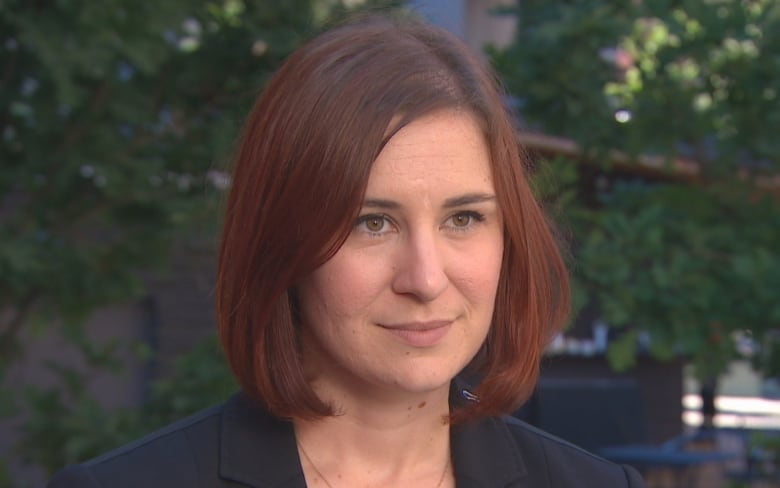Minister of rural development 'open' to internet access becoming public utility
'I believe it's an essential service,' says Minister Maryam Monsef

Minister for Rural Economic Development Maryam Monsef says she's open to the idea of internet access becoming a public utility, funded like water or electricity, in order to increase access for Canadians in rural areas.
"I believe it's an essential service," said Monsef, MP for Peterborough-Kawartha, and minister for both women and gender equality as well as rural economic development.
"What COVID has done is create an opportunity for a resurgence of good ideas, and that's a good idea that I'm open to," she told The Current's Matt Galloway.
"This is among the many good ideas that we are considering: What are the pros? What are the cons? How do we get it done? Who's on board?"
The federal Liberal government promised $5 billion-$6 billion for the Universal Broadband Fund in the 2019 budget, aiming to get 100 per cent of Canadians connected to broadband by 2030. The fund follows 2016's Connect to Innovate fund, which pledged $500 million to connect 300 rural communities by next year.

The CRTC has extended the deadline to apply for the Universal Broadband fund to June 1, but no additional dollars from it have been spent since the pandemic began.
"Money has not been the limiting factor; there's $6 billion set aside," said Monsef.
"We're fine tuning that plan, and within a very short period of fun, we'll roll out the funds."
Advocate Laura Tribe said the delay in spending is harming rural Canadians who are even more in need of internet access during the pandemic.
"The current government's plan says 2030," said Tribe, executive director of no-profit Open Media.
"For those living in rural Canada, 10 years from now feels like a long time to wait to be able to check in on your Grandma, and have a Zoom call, or finish your education," she said.

She wants to see continued efforts with long-term solutions to ensure rural communities have access to robust internet connections, but also funding for "short-term solutions to make sure that where there are projects that can go now, they get moving."
"We really need those targets up not by one or two years, but exponentially faster."
'Really big difference' in speeds
According to figures from the CRTC, 40.8 per cent of households in rural Canada have access to basic broadband (defined by the CRTC as 50 mbps download and 10 mbps upload), compared to 85.7 per cent in urban areas.
Tribe said recent data also showed urban areas enjoyed speeds up to 12 times faster than rural counterparts.
"If you picture driving along the highway at 120 kilometres an hour versus 10 kilometres an hour, that's a really big difference," she told Galloway.
"It's the difference in the internet landscape of being able to actually join a video conference, being able to watch a movie, being able to do your homework."

Making it an essential service would mean "the government is obligated to ensure connectivity," she said.
"I think when we look at how this pandemic has impacted people, there's no question that this is something that people are relying on to keep alive, to stay out of trouble, to stay safe, and something that the government should be prioritizing and rolling out to all of Canada."
Poor connection 'a daily struggle'
Nancy and Jeff Boss live with their kids in Flamborough, 10 minutes outside of Hamilton, Ont., where poor internet connectivity has made life in the pandemic more difficult. Nancy is a school teacher.
"I am struggling daily with my lessons, I can't do live lessons as the minister of education is requiring us," she said, adding that her own children's education is being affected too.
"It's really hard for our kids to participate in their lessons … [and] it's sad, they can't chat with their friends who they miss very much."
Relying on a data plan that slows speeds past a certain usage, the family has cancelled their Netflix account, and limits video calls with family members.
"It's a daily struggle for us," Nancy said.
When they are ultimately responsible to their shareholders, that's who they're going to put first, not the people that need service- Laura Tribe
Jeff said their monthly data bill is $150, but has crept up to $500 in instances where the family goes over their usage.
Their home falls just outside the service area of a broadband provider, but when they asked about extending that wiring 100 metres as far as their home, they were quoted $27,000.
Tribe said many governments have relied on telecom companies taking the lead, but — as with the Bosses case — "that's just not profitable."
"When they are ultimately responsible to their shareholders, that's who they're going to put first, not the people that need service," she said.
Monsef said "one of the things that the federal government can do is to invest in that last mile, where the business case for the private providers is not the same."
"Once you do connect Canadians, though, those investments will pay off because that connectivity leads to economic development and a higher quality of life," she said.
Written by Padraig Moran. Produced by Peter Mitton.
